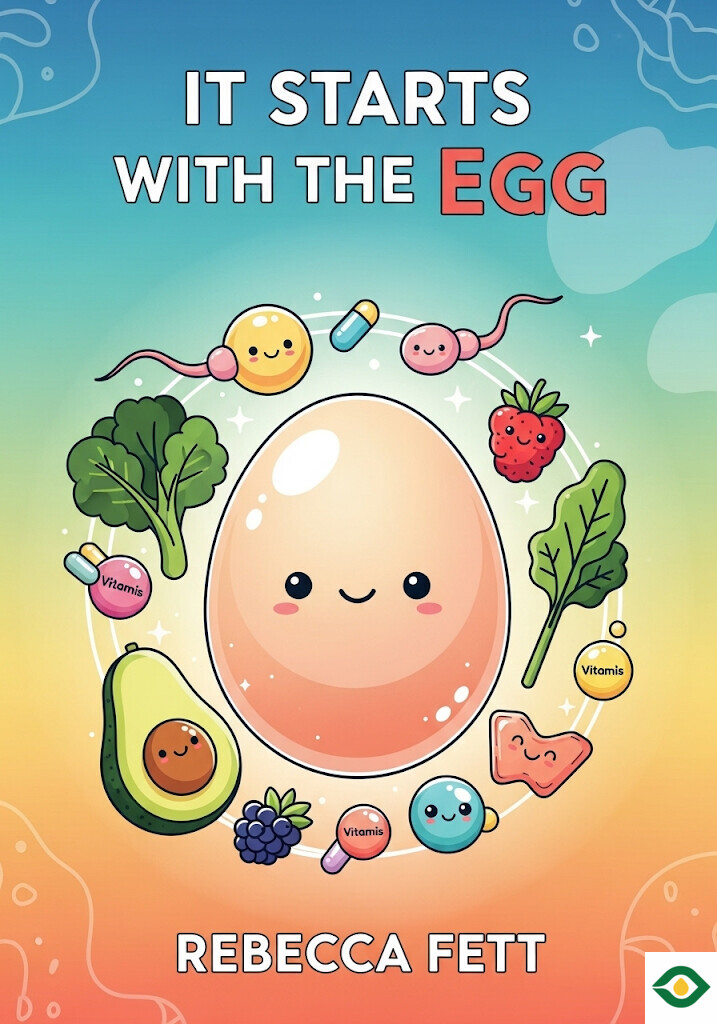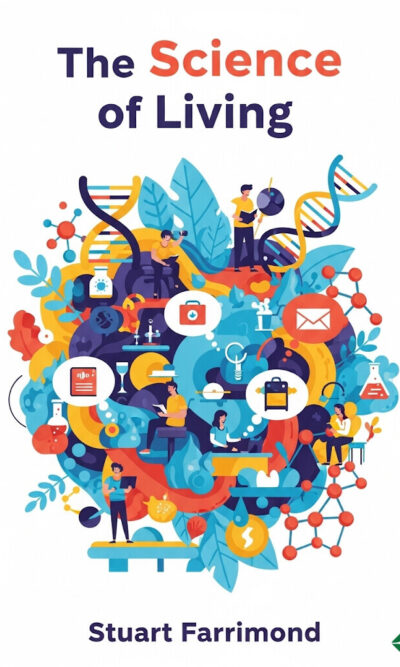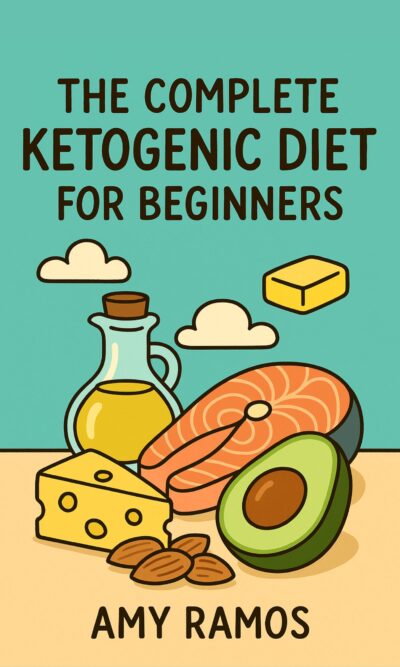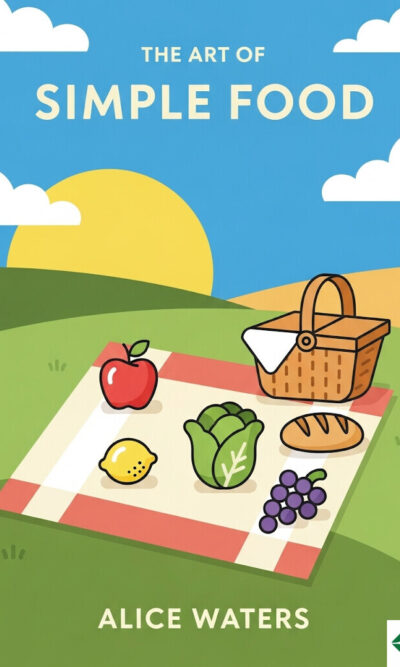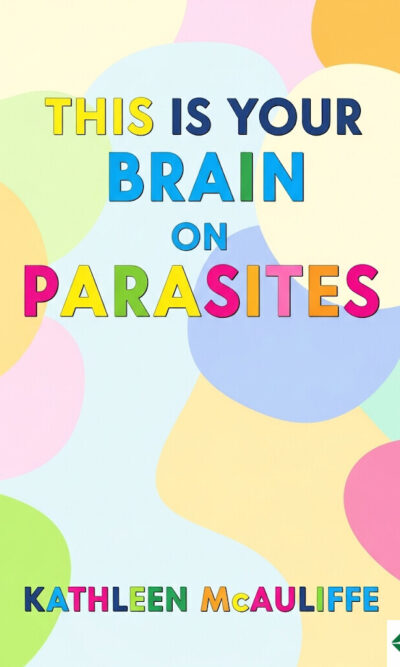Description
Fertility is often described as simple: sperm meets egg, and a baby results. But for many people, the reality is far more complex. Factors like age, health, environment, and lifestyle all influence the chances of conception. For those facing difficulties, egg quality becomes one of the most important pieces of the puzzle. While the number of eggs a woman has is fixed at birth, their quality can be influenced by everyday choices. The good news is that by making intentional changes in diet, supplements, and environment, it’s possible to support egg health and improve the chances of conception.
Egg quality refers to whether an egg has the correct number of chromosomes and enough energy to grow into a healthy embryo. Each egg starts with 46 chromosomes, but during a process called meiosis, it splits down to 23. The sperm then provides the other 23. When this division goes wrong, the egg may have missing or extra chromosomes, a condition called aneuploidy. These eggs usually cannot develop into healthy pregnancies and often lead to miscarriage. In fact, more than 40 percent of miscarriages are linked to chromosomal abnormalities.
For a long time, scientists believed egg quality was entirely determined by age and could not be improved. Older eggs were seen as inevitably weaker. But new research has shown that errors often occur during meiosis itself, and the strength of an egg’s mitochondria—the tiny power plants inside each cell—plays a huge role. Healthy mitochondria provide the energy an egg needs to complete meiosis successfully. That means supporting mitochondria through nutrition, supplements, and lifestyle can make a difference, even later in life.
One supplement that has gained attention is Coenzyme Q10, or CoQ10. This naturally occurring compound helps mitochondria produce energy. As people age, CoQ10 levels decline, which may weaken egg quality. Studies show that women who take CoQ10 before fertility treatments, such as IVF, often see higher success rates. Eggs powered by strong mitochondria are more likely to develop normally, fertilize, and reach the blastocyst stage—the stage when the embryo can implant in the uterus. Since food provides only small amounts of CoQ10, supplements are often recommended, with the ubiquinol form being especially effective.
Another key factor is oxidative stress, caused by unstable molecules known as free radicals. These can damage cells, and eggs are particularly vulnerable. The body has natural antioxidant defenses, but these also decline with age or certain health conditions. That’s where antioxidants like melatonin, vitamin C, vitamin E, and alpha-lipoic acid can help. Melatonin, for example, is not only a sleep hormone but also a strong antioxidant that protects eggs. However, it’s mainly recommended for those undergoing IVF, while others may benefit more from dietary antioxidants. A good prenatal vitamin with folate, B12, and B6 is also essential for supporting both egg and embryo development.
While supplements can help, avoiding harmful toxins is equally important. One of the most researched toxins is BPA (bisphenol A), a chemical commonly found in plastics. Studies show BPA can interfere with meiosis and increase the chance of chromosomal errors. Even low levels of exposure may affect egg quality. BPA often leaches from old or heated plastics into food or drinks. To reduce exposure, it’s wise to replace plastic containers, water bottles, and cooking tools with glass or stainless steel. Although many products now advertise as “BPA-free,” they may contain substitutes like BPS or BPF, which can be just as harmful.
The positive news is that diet can help protect against toxins. Folate-rich foods such as spinach, kale, lentils, and avocados can reduce the effects of BPA on fertility. Research has shown that women with high BPA levels who ate folate-rich diets still managed to conceive at rates similar to those with lower BPA exposure. This highlights how powerful nutrition can be in counteracting environmental risks.
Diet plays an even larger role in overall fertility. Blood sugar regulation, for example, is critical. When we eat sugary or highly processed foods, blood sugar spikes, leading to high insulin levels. Over time, this can cause hormone imbalances and reduce ovulation frequency. It can also damage mitochondrial function in eggs. Even women with slightly elevated blood sugar levels may have a harder time conceiving. The solution lies in choosing slow-release carbohydrates such as whole grains, legumes, and brown rice, which keep blood sugar stable. Pairing these with lean proteins and healthy fats further supports balanced hormones.
One of the most recommended fertility diets is the Mediterranean-style diet. This way of eating emphasizes vegetables, leafy greens, olive oil, nuts, legumes, whole grains, seafood, and moderate amounts of lean meat. It naturally provides antioxidants, omega-3 fatty acids, and B vitamins, all of which are crucial for reproductive health. Couples who follow a Mediterranean-style diet have been found to have higher chances of conceiving both naturally and through assisted methods like IVF.
Another important detail is the role of homocysteine, an amino acid that can build up in the body when folate and B vitamins are lacking. High levels of homocysteine have been linked to egg defects and higher miscarriage risks. A diet rich in leafy greens, beans, fish, and fortified grains can keep these levels in check, helping eggs stay healthier.
Beyond food, lifestyle also matters. Stress, poor sleep, and lack of exercise can all affect reproductive health. Regular physical activity improves blood flow, supports hormone balance, and reduces inflammation, all of which help eggs. Sleep is equally critical because it regulates hormones like melatonin, which also protects eggs. Managing stress through mindfulness, yoga, or simple breathing exercises can create a healthier environment for conception.
Altogether, the picture is clear: egg quality isn’t fixed. While age does matter, science shows that targeted steps can improve the health of eggs at any stage. Supplements like CoQ10, melatonin, and prenatal vitamins provide the body with key building blocks. Avoiding toxins like BPA reduces risks, and a Mediterranean-style diet filled with antioxidants, folate, and omega-3s offers daily support. By combining these strategies with good sleep, stress management, and moderate exercise, people trying to conceive can dramatically improve their chances of success.
The journey to parenthood can feel overwhelming, especially when obstacles arise. But knowing that eggs respond positively to care and attention is empowering. It means that choices made today—what to eat, how to rest, and which products to avoid—can directly support the possibility of new life tomorrow. Whether someone is just starting out, considering fertility treatments, or planning ahead for the future, the steps toward stronger, healthier eggs are within reach.
In the end, the message is hopeful: while fertility is never guaranteed, simple, consistent actions can tip the balance toward better outcomes. Egg quality is not entirely out of one’s control. By taking ownership of health and lifestyle, many can find themselves closer to the dream of building a family.

